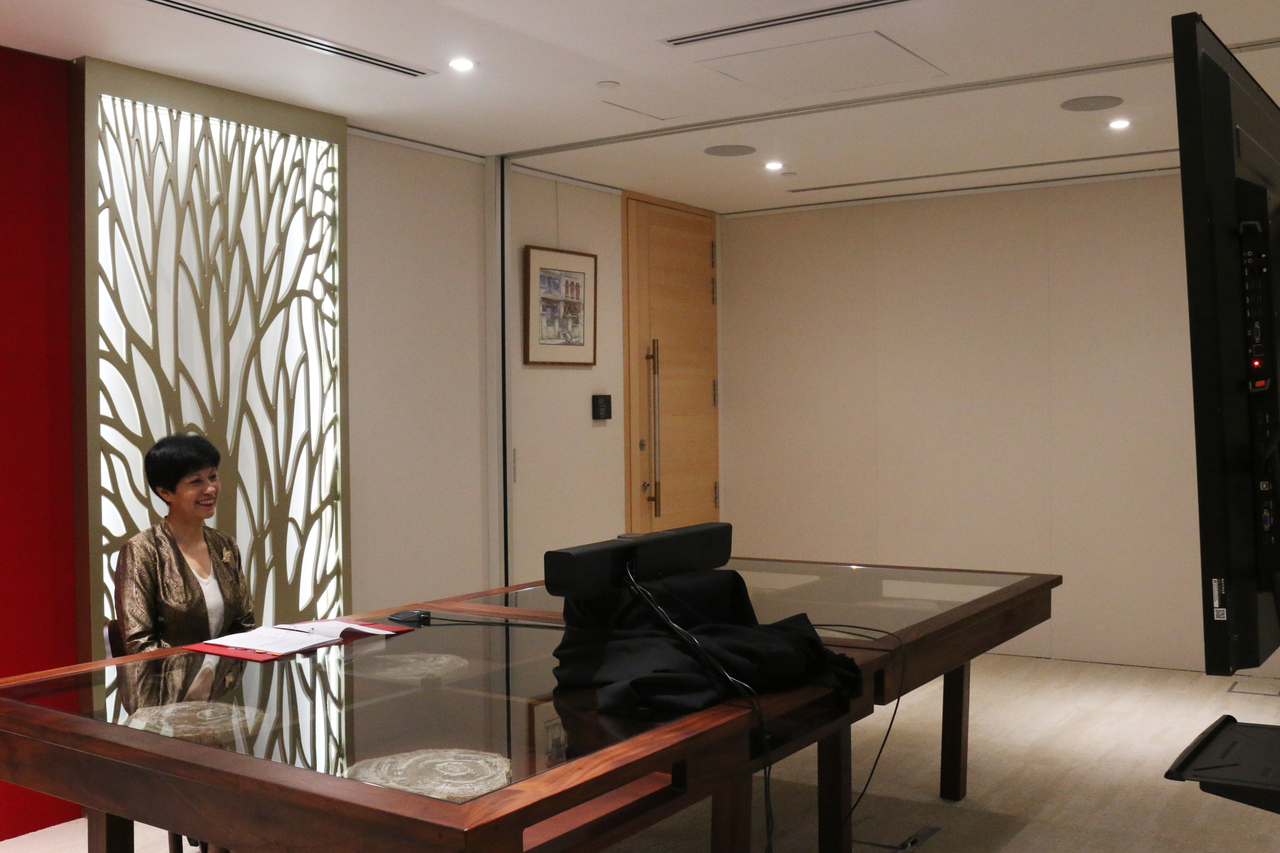Digital and social resilience key to emerging stronger from Covid-19 pandemic: Indranee Rajah
Sign up now: Get ST's newsletters delivered to your inbox

Minister Indranee Rajah said beyond financial support, boosting digital resilience is also about inclusion.
PHOTO: INFRASTRUCTURE ASIA
SINGAPORE - When a group of hawker and market association chairmen spoke to Minister in the Prime Minister's Office Indranee Rajah recently, they were a bundle of nerves over having to use the video conferencing tool Zoom for the first time.
"You could see them very cautiously touching the mute and unmute buttons, and looking at the screen. But the fact is that they were all game to do it," said Ms Indranee, who is also the Second Minister for Finance, in a radio interview with Money FM 89.3 on Thursday (June 11).
Getting hawkers to adopt digital tools is just one way the Government is helping businesses emerge from the pandemic stronger, she said.
"During the circuit breaker, those that had e-solutions could still continue payments, audits ...Those that were on manual systems would have been stuck because they couldn't go back to the office," noted Ms Indranee.
The Government is dedicating around $100 billion - or nearly 20 per cent of GDP - in Covid-19 support this year.
Key measures include the Jobs Support Scheme, which provides wage subsidies to employers to retain their workers, foreign worker levy waivers and rental rebates, as well as incentives for businesses to adopt digital solutions.
Ms Indranee said the new Digital Resilience Bonus allows eligible businesses to get a payout of up to $5,000 if they adopt PayNow Corporate and e-invoicing, as well as business process or e-commerce solutions.
The scheme is part of more than $500 million that will be allocated to support businesses in their digital transformation.
Beyond financial support, boosting digital resilience is also about inclusion, especially for the elderly and students from lower-income families, said Ms Indranee.
For example, schools have loaned out more than 20,000 computing devices to students who lacked digital gadgets or Internet access for their home-based learning during the circuit breaker.
Digital literacy is key to the success of these efforts, she said. "You can have the device, you can have the data, but if you don't know how to use it, then you still will be digitally excluded."
Ms Indranee also acknowledged that attention must also be paid to mental health, especially as Singaporeans readjust to life after the circuit breaker.
She noted that some of the initiatives to boost mental wellness include the National Care Hotline for emotional support as well as peer support programmes in schools.
"Going forward, we have to make sure that we're more resilient as a society and help people cope," she said.
"We will be looking quite seriously at this on the national level, in terms of how we can promote mental wellness."
"We will be looking quite seriously at this on the national level, in terms of how we can promote mental wellness."
The Government has also announced more support for the social sector amid a fall in the number of donations to charities.
Ms Indranee cited the Tote Board's Enhanced Fund-Raising Programme, which will get an additional $100 million on top of the $70 million it had already set aside.
The programme will allow charities to receive dollar-for-dollar fund-matching from the Tote Board on eligible donations raised from projects implemented from April 1 to March 31,2021, capped at $250,000 per charity.
Another programme, the Invictus Fund - which helps social service agencies maintain their services and transform their work - will get a top-up of $18 million.
But funding is just part of the equation, she said. Social service agencies must transform their processes, she added. "They might have been doing things with less technology, less automation - now they realise there's a lot more that can and should be done."
"In the past, one would ask them to come down to the Family Service Centre, or the social worker would go visit the family. But in a pandemic situation where physical meetings may not be possible, one then has to reach them virtually or digitally."
Ms Indranee added that the pandemic had accelerated the adoption of technology. "It is one of those situations where you change or be changed, transform or be transformed."
"In previous years, the Government was saying that (businesses and people) must transform, but there wasn't that sense of real urgency. People knew it was something they had to do - some did it, others, not so quickly. But now, suddenly, everybody has to do it."


